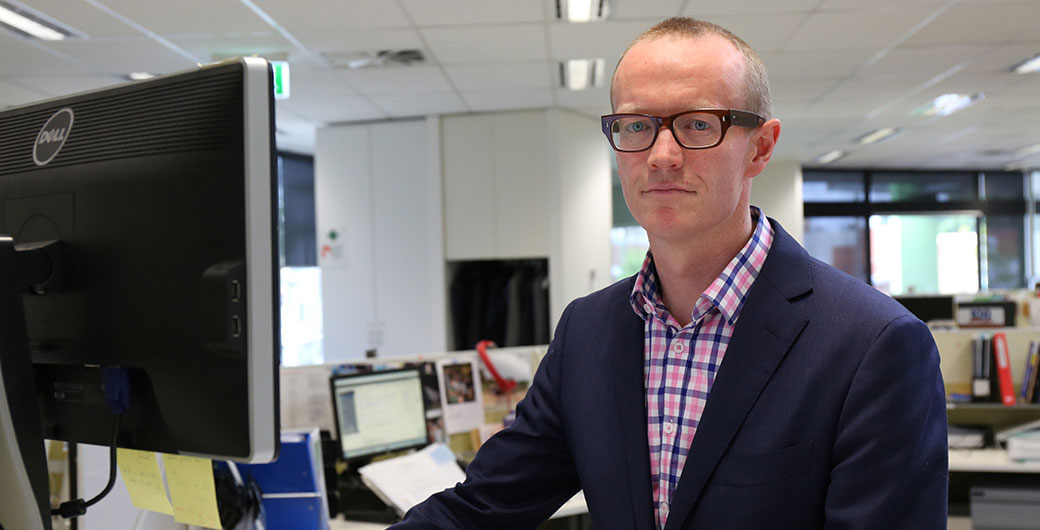The importance of being vulnerable: Talking strategic leadership with ANZSOG alumni
21 January 2018
● News and media
Strong leadership relies on resilience but the importance of vulnerability should not be underestimated.
Victorian public sector manager Mark Hogan, a participant in ANZSOG’s Towards Strategic Leadership (TSL) program in 2017, emphasised the importance of bringing your own personal style to leadership, as well as being open with your emotions.
“I think that people often forget the power of being a little bit vulnerable in what you do,” he said.
“I think when you are vulnerable as a leader you actually invite people into your space to get better outcomes.
“For me, the biggest things that I took away were the importance of self-reflection and just the value that comes from being vulnerable in a professional way.”
Mr Hogan described TSL as an intense and confronting experience, which challenged participants on their leadership styles and opened his eyes to new ways of leading.
“It’s very experiential. You’re out in the field, you’re learning and studying, you’re meeting people, you are being forced to turn around decisions or think about approaches in a fast-paced manner,” he said.
“I’d recommend the program for anyone who wants to continue working in the public sector and has aspirations around leadership.”
The TSL Program is a two-week residential program designed for experienced public sector managers who are moving from an operational to a strategic leadership role. It is based on the premise that leadership can be taught, and that the basis of good leadership is self-reflection and developing a personal style of leadership.
The 2018 program will consist of two residential modules of five days each, in June and October. Applications close on March 16.
Register your interest
ANZSOG’s Professor Paul ‘t Hart, TSL co-director, says effective leaders have a defined sense of purpose, a strong sense of self and the ability to manage urgent and important tasks.
“These are leaders who are supposed to be ahead of the game, think long term, reframe problems and question the set ways of an organisation or a program, in ways that middle management don’t always get the opportunity for,” he said.
Based in Ballarat, Mr Hogan is Regional Development Victoria’s (RDV) manager of economic development, and regional planning and coordination, for the Grampians region.
He leads a team which works closely with various Victorian Government agencies to coordinate economic, infrastructure and community development projects which create jobs and improve the quality of life for regional Victorians.
“I think that every time I’ve taken a risk in my professional life and done something that has probably taken me out of that comfort zone I’ve been able to grow and learn from it, and this is no exception,” Mr Hogan said.
“In the two intensive weeks, you have so many conversations with people that are grappling with the same challenges as you, and in sharing their challenges and stories, you’re hearing about the points of excellence, the ideas and failures that are emerging, and that either reinforces that you are on the right track or brings other stories to the table.”
Mr Hogan said that the TSL experience has helped him to focus on what he is trying to do as a leader.
“In our organisation we are trying to do new things, to innovate and to empower people’s thinking, and I think the program really reinforces that for me.”
Professor Paul ‘t Hart said that the program was highly interactive and participants were expected to be co-creators of the course.
“The key idea of the program is to get people from a state of running around and doing things, solving problems, into a state where they are giving themselves permission to reflect on what they are doing and have done, and open themselves up to feedback from colleagues.
“They need to challenge their assumptions about their organisations, their colleagues and most importantly, themselves.”
